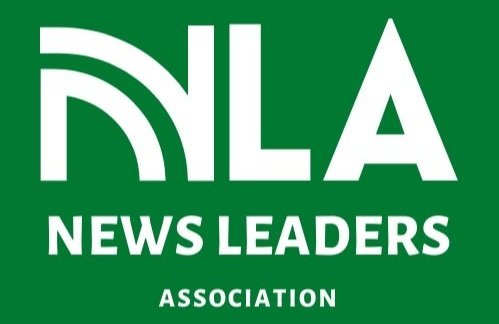News Leaders Association Calls for Structural Changes on Newsroom Diversity
June 12, 2020
The NLA Diversity Study effort is under reconstruction for a variety of reasons, including the fact that news outlets across the country in recent years have declined to participate. The 40th anniversary of the survey’s creation by the former American Society of News Editors (now News Leaders Association) brought record-low participation in 2018. Only 17 percent of U.S. newsrooms submitted their data.
To reverse the trend and develop tools for more impact, NLA has been working with Meredith Clark, an assistant professor of media studies at the University of Virginia, for the past two years, to update the survey to address the contemporary realities of the industry’s evolution and make it inclusive not only to journalists who are marginalized in terms of race, ethnicity and gender, but also gender identity and sexual orientation. As part of the survey work, Clark and her team conducted in-depth interviews to provide contextualizing data in attempt to help the industry make sense of the numbers. NLA is in the midst of using this research to create a more detailed data collection strategy.
No longer an organization known for just publishing annual diversity results, our mission moving forward will equally focus on giving newsrooms the tools to take the steps to create diversity goals and achieve them. As the News Leaders Association works to develop a more effective strategy for 2021 and beyond, Clark’s research provides several concrete actions newsroom leaders, rank-and-file journalists, and journalism stakeholders can take now to begin the work of creating newsroom climates where people from underrepresented groups have assurance that their expertise - from hiring and personnel matters to story pitches and issue framing - will be heard, valued, and faithfully acted upon.
“Recent events among our own industry should confirm that the time to act is now,” said Katrice Hardy, executive editor of the IndyStar and Midwest Regional Editor for USA Today Network and the chair of NLA’s diversity committee. “NLA is no longer asking, we are now demanding news leaders take significant actions that truly lead to diverse and inclusive newsrooms.”
The following suggestions have been developed from interviews with more than 40 journalists of color who are or were currently working in print and/or digital newsrooms. [1]
● Recognize that there are limits imposed by homogeneity in leadership in your organization – in terms of both cultural knowledge, experience and perspective. Set a 90-day goal to diversify the leadership, providing new leaders with the resources and authority to do the job they have been hired to do.
● Embrace that every journalist, including those who claim to be “objective,” have a “both/and” existence. Everyone brings at least two perspectives to their work – the personal/cultural, informed by their lived experiences; and the professional, informed by the industry’s values, routines and norms.
● Do the groundwork of understanding the community conditions in which staffers from underrepresented groups are being asked to live and work. What local histories and contemporary concerns might you take for granted that could impact the ability of a staff member to feel welcome in the community beyond the newsroom, and how might that impact their work? Work with new hires to identify actions newsrooms can take to mitigate cultural disconnect.
● Take the initiative to engage with race in explicit ways without burdening subordinates. Identify your own blind spots via self-examination and develop your own self-improvement plan. We encourage white news leaders, in particular, to be mindful that this work is a lifelong endeavor and cannot simply be done by reading books and watching videos. Nor is it done comfortably.
● Make room for structural change in DEI efforts by giving over space, influence, and resources – including leadership positions with commensurate salary – to staff members who have demonstrated their commitment to such work. Trust in their professional capacity to be both a journalist and a human being with a perspective that is different from your own.
The NLA Board of Directors and its diversity committee is committed to working with journalism stakeholders including foundations, affinity groups, educational groups, and others to advocate for structural changes that will prioritize and incentivize participation and transparency in the collection and dissemination of demographic data of the country’s print and digital news outlets.
Finally, NLA is calling for 12 U.S.-based journalists committed to structural change in the newsroom to join our advisory group and participate in the research and design phase of our efforts. Our aim is to recruit across media types and job classifications, as well as identities, ages, and geographic locations. The work will include a series of bi-weekly Zoom meetings, completing a series of short climate surveys and piloting our data-collection strategy. The process will run from July 1 through Sept. 1 and will require up to 20 hours of each participant’s time. Participants will receive an honorarium of $1,500 upon completion of the research and design phase. To be considered for this advisory group role, please visit: https://meredithclark.typeform.com/to/keqoRt Recruitment will close on Friday, June 26, at 5 p.m.
In explaining the urgency of this research effort, Clark said, “This moment requires malleable plans of action that draw upon a plurality of viewpoints and experiences to provide better quality information to more people – including those who have been historically unserved, underserved and maligned in news coverage.
“The news that we produce must present a robust picture of contemporary society from the view of many, not the purview of a select few,” she continued. “It must be produced through a process of intentional, ethical deliberation and analysis of the facts designed to check the comparatively subtle influence of white supremacy that has characterized the U.S. news media since its inception.”
Contact:
Meredith Clark: mdc6j@virginia.edu
Fran Reilly: freilly@newsleaders.org
[1] Qualitative interviews were conducted in 2018 and 2019 with journalists of color, including LGBTQIA+ identifying journalists from AAJA, NABJ, NAHJ, NAJA, and NLGJA.
